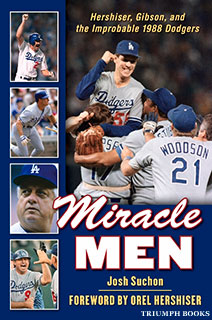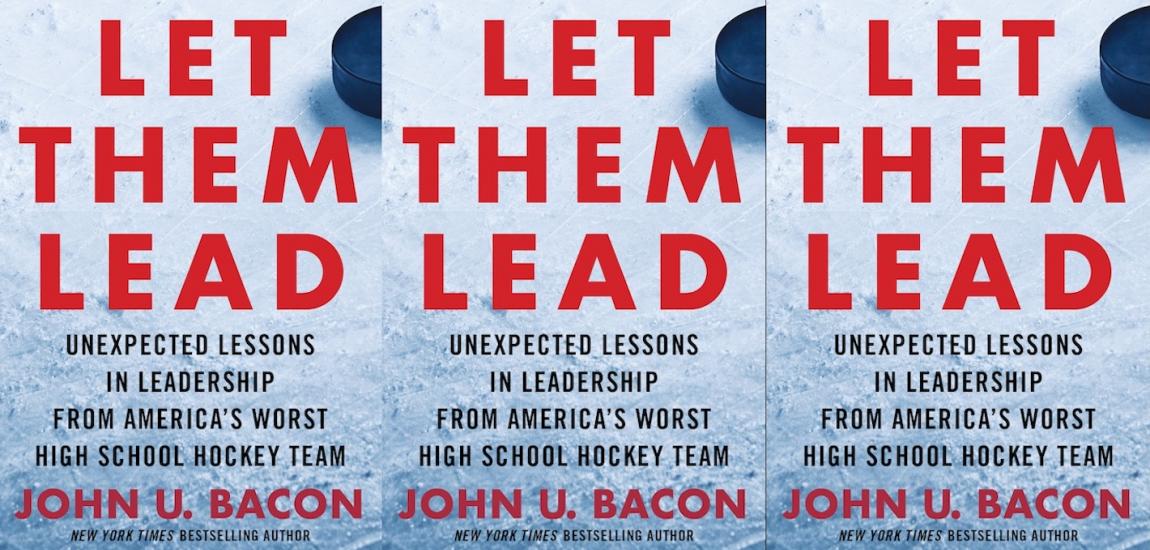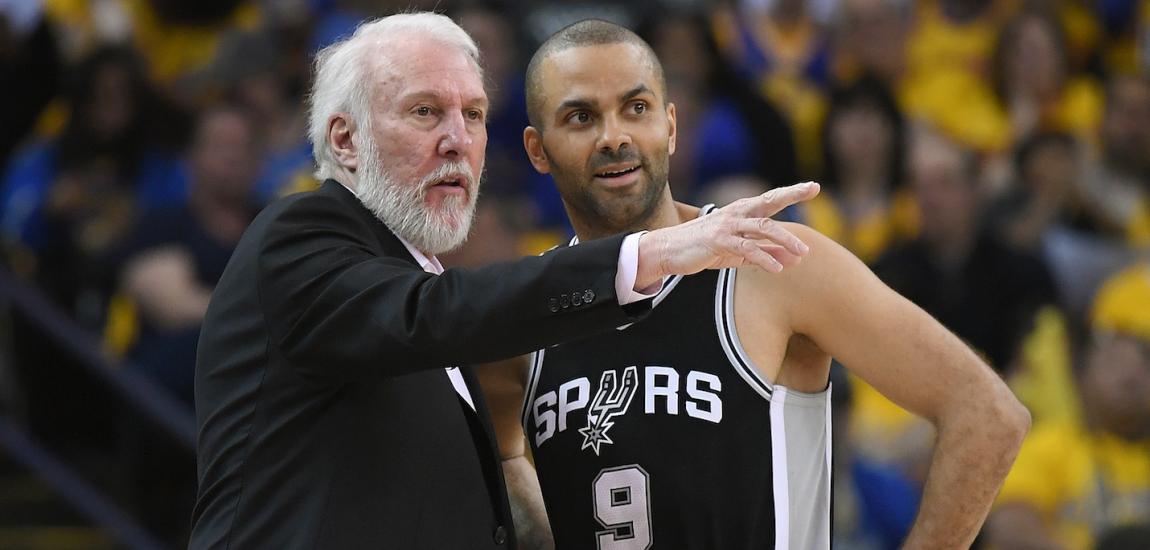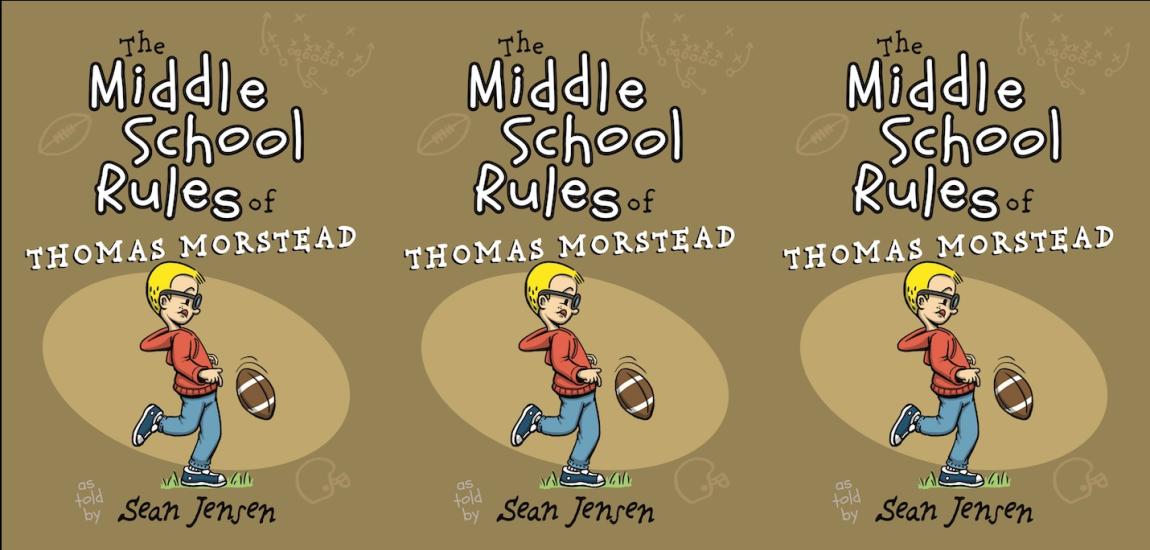The 1988 World Series champion Los Angeles Dodgers are best remembered for Kirk Gibson's dramatic home run, Orel Hershiser's pitching dominance, and manager Tommy Lasorda's masterfully corny motivation, but there was much more that made the season memorable, bittersweet, and controversial. Miracle Men by Josh Suchon takes a new generation of Dodgers fans back to that championship season, from the end of Don Sutton's Hall of Fame career to the memorable 46-day stretch of pitching by Hershiser that hasn't been equaled since. Hershiser closed out the 1988 World Series in Oakland by winning Game 5 and then had a chance encounter with the author.
The Los Angeles Dodgers broke my heart in 1988. I was 15 years old and a rabid fan of the Oakland Athletics. My real home was Pleasanton, California, a suburb 20 miles east of Oakland. But my practical home was the Oakland Coliseum.
My dad annually bought tickets to 20 games from a friend of his who had season tickets. The seats were amazing: Section 123, Row 2, Seats 12 and 13 -- on the aisle, just to the left of the A's dugout.
Even when we didn't have those choice seats, I'd go to games with a handful of good friends from Foothill High. We'd take the bus from Hopyard Road in Pleasanton to the Hayward BART station and ride it for three stops to the Coliseum exit. We'd leave right after school, arriving to get autographs in the parking lot, chase down batting practice home runs, watch the game, and stay late for more autographs.
We'd buy $2 bleacher seats or third-deck seats (I could pass for under age 12 to buy half-price tickets that cost $3). Then we'd think of creative ways to annoy the ushers by sneaking into seats that didn't belong to us. I went to 53 regular season games in 1988. I know that number precisely. I saved the ticket stub from each game and kept them in my wallet, chronologically. If somebody at school didn't believe me, I'd show the ticket stubs for proof. If there was a day game, my friends and I usually skipped school to attend. Sometimes our parents knew. Usually, they didn't know.
When the 1988 playoffs began, I skipped school to watch Game 1 of the American League Championship Series against the Boston Red Sox on TV at home. I went to Game 4 of that series in Oakland and chanted "SWEEEEEEP" along with the sellout crowd.
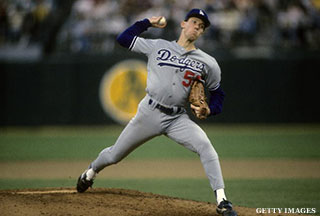
For the World Series, I watched Games 1 and 2 from home. When the series shifted to Oakland, I snuck into Game 3 without a ticket. It was actually miserable not having a seat and walking around the whole game looking for an empty seat. I barely saw Mark McGwire's game-winning home run off Jay Howell. I watched Game 4 at home when the A's fell behind 3–1 and was dreading the elimination game.
We had tickets for Game 5. As usual, I took public transportation to the game with friends (who had seats elsewhere) and met my dad at "the good seats." I remember getting Bobby McFerrin's autograph in the parking lot before the game, and he wrote, "Don't Worry Be Happy." Still, I was worried. It felt like going to a funeral. I knew this night would end miserably for my beloved A's.
Sometime around the seventh inning, when the end was inevitable, my dad was losing his patience. Can't remember exactly what he yelled, but it must have been awesome and totally inappropriate because I vividly recall Mary Hart, from Entertainment Tonight fame, hearing it and turning around to see who would say such a thing.
In the ninth inning, my dad had seen enough. He wasn't going to watch the Dodgers celebrate on "our" field. He was leaving. I wanted to stay, just in case. After what Kirk Gibson did in Game 1, I wasn't going to miss the A's comeback. The conversation went something like this:
Dad: "We're leaving."
Me: "We should stay. You never know."

Dad: "If you want to stay, find your own way home."
Me: "Fine. I will."
Honestly, I didn't really think he'd leave. But he did. This wasn't poor parenting. Remember, I went to games without adult supervision routinely. We were experts at taking public transportation. Plus, one of my friends worked in the visitor's clubhouse, and he had a car, so there was a ride home available.
The A's didn't have a miracle comeback in them. Orel Hershiser finished them off in the ninth inning. I watched the inning with red eyes. When I saw the Dodgers celebrating on the field, tears filled my eyes and ran down my cheeks.
Eventually, I'd wipe the tears off my face and wander around the stadium in a daze. Instinctively, I walked toward the hallway that leads to the clubhouses and ran into my friend Corey Kell. His favorite player was Tony Phillips, who struck out to end the game, and I remember Corey saying he gave "TP" a standing ovation for what might have been his last at-bat with the A's.
I remember thinking everything about life sucked right then. The A's had lost the World Series to the Dodgers. I was going to be ridiculed at school for all the boasting I'd done. I owed a lot of money to kids from bets that I made. And, oh yeah, I had to find my own way home because I was stubborn.
Worst of all, baseball season was over. No more games to attend. No more school to cut. No more autographs to obtain. No more BP home runs to chase. No more fun.
As these thoughts swirled in my head, I was just about to start crying again. Then I heard a commotion. Security guards were clearing the way. Somebody was behind them.
It was Hershiser.
Before I even realized what was happening, I yelled, "You were lucky, Hershiser!" as he walked by, trailed by reporters as he was taken to the interview room.
I'm guessing it was about a week later when my friend Corey Kell called me after school. The conversation went something like this:
Corey: "You get the new Sports Illustrated in the mail today?"
Me: "Yeah."
Corey: "Did you read it?"
Me: "Hell no. Why would I want to read about Hershiser beating us?"
Corey: "You should read the final paragraph on page 37."

I hung up the phone, grabbed a copy of the magazine, and couldn't believe what Peter Gammons wrote:
"But the Bulldog in him came out when, after the Athletics were disposed of, he walked down the hallway to the interview room in the Oakland Coliseum and an A's fan yelled, 'You were lucky, Hershiser!' A couple of dozen steps later, Hershiser blurted out, ‘Oh yeah -- grab a bat.' He wasn't smiling."
Only one person on the planet knew that I was the idiot who told Hershiser -- after 59 consecutive scoreless innings and after dismantling the Mets and A's in the playoffs -- that he was lucky.
It was Corey Kell. It just so happened Corey had a subscription to Sports Illustrated. And unlike me, he decided to read the magazine. If it wasn't for Corey, I'd have probably thrown the issue in the trash and never known about the paragraph.
At least my name wasn't used. But the only thing worse than knowing that my words were in the most famous sports magazine in the world, saying something utterly stupid, was that Hershiser taunted me by saying, "grab a bat."
I'd never heard the "grab a bat" line. We were walking opposite directions and he was past me in a second. I'm sure security tossed me out of the way, as well.
Seven years later, in 1995, I was doing a summer internship at ESPN in Bristol, Connecticut. It was a Sunday afternoon and I was in the cafeteria alone when I spotted baseball reporter Peter Gammons. We were the only two people in there. I was about to turn 22 years old. If the place had been full of people, I'd have never approached him.
But I had to tell him about the article he wrote in 1988 and ask if he remembered some kid yelling that Hershiser was lucky.

Gammons remembered it well. We spent the next 30 minutes talking about Hershiser, Kirk Gibson, that series, the 1989 World Series, the earthquake, and how Gammons will always remember Dave Stewart going down to the site of the collapsed freeways to bring coffee and donuts to workers as they searched for bodies.
Six years later, in 2001, it was my second year as the San Francisco Giants beat writer for the Oakland Tribune. I was now 28 years old. I'd told the story to a couple of my colleagues, and they thought it was hilarious. One of them was Jeff Fletcher, who worked at the Santa Rosa Press Democrat at the time, and sat next to me in the press box.
One day during batting practice, Fletcher told me that he was here. Who?
Hershiser.
The conversation went something like this:
Fletch: "You have to tell him the story."
Me: "Really? Do I really have to do it?"
Fletch: "Yes."
Hershiser was there as a TV analyst for ESPN. Bashfully, my heart racing, I went over and introduced myself -- first, as a reporter. Then I told him that I was the kid who told him he was lucky. Hershiser was more excited than me to hear this story.
His response was something like this: "No way! This is awesome! We need a bat! Who's got a bat? We need a picture! My wife would love this! We need a photo for my wife. This is awesome!"
Hershiser went on to say he always regretted saying, "Grab a bat." He was reminded of the famous Coke commercial with "Mean" Joe Greene when he threw a jersey to the kid. He wanted to throw something toward me. But it was too late. He was whisked away, and I was gone.
Honestly, I thought it was a bunch of crap. But I appreciated Hershiser being so kind and saying something nice.
In 2006, I was the A's beat reporter at the Trib, and Hershiser was one of the candidates to be their new manager. We talked on the phone before his job interview, and we both laughed at how hysterical it would be if he got the job and one of the reporters covering him was the kid who called him lucky.
Deep down, we both knew Bob Geren was going to get the job -- and Geren did. A few months later, I decided it was time to switch careers. I left the newspaper business and became a minor league play-by-play announcer for the Modesto Nuts.
It's strange how often life comes full circle.
A year after leaving the majors for the minors, I was back in the majors, this time as the reporter for the Dodgers Radio Network and the cohost of Post Game Dodger Talk after every game on 790 KABC in Los Angeles. I held that job from 2008–11.
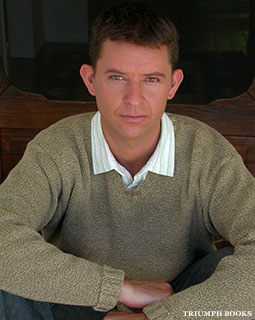
A few times every year, I'd run into Hershiser. Whenever possible, I wouldn't say hello. I'd just walk past him and say, "You were lucky, Hershiser" without stopping. It always made us laugh. Then we'd end up talking more and invariably tell the story again to whoever was around us.
The first time I got the idea to write this book was during the 2009 playoffs. I was on the Dodgers' charter flight to Philadelphia and was reading Joe Posnanski's magnificent book on the 1975 Reds, The Machine.
I wanted to write a similar book about a World Series champion from decadespast. It seemed only natural to write about the 1988 Dodgers. That team crushed me as a teenager living in the Bay Area. But as an adult now living in Los Angeles, I could appreciate what an incredible story it would be to tell.
When I told Hershiser about this book, I could see what made him such a good teammate. He thought it was a great idea and encouraged me to do it. He made sure I had his cell phone number. When Hershiser entered my number into his iPhone, he typed "you were lucky" as my company name.
In the summer of 2012, as I worked on this book, I paid Hershiser a visit at Angel Stadium before a game he broadcasted on ESPN. When our conversation was over, I started to walk away and Orel stopped me.
"Hey Josh," he said, "grab a bat."
This time, he was smiling.
-- Excerpted by permission from Miracle Men by Josh Suchon. Copyright (c) 2013 by Josh Suchon. Published by Triumph Books. All rights reserved. No part of this excerpt may be reproduced or reprinted without permission in writing from the publisher. Available for purchase from the publisher, Amazon and Barnes & Noble. Follow Josh Suchon on Twitter @Josh_Suchon.

